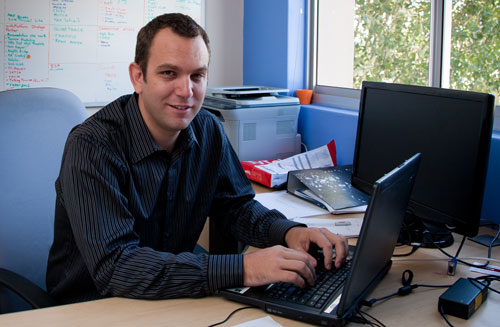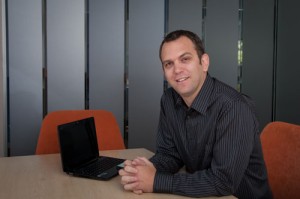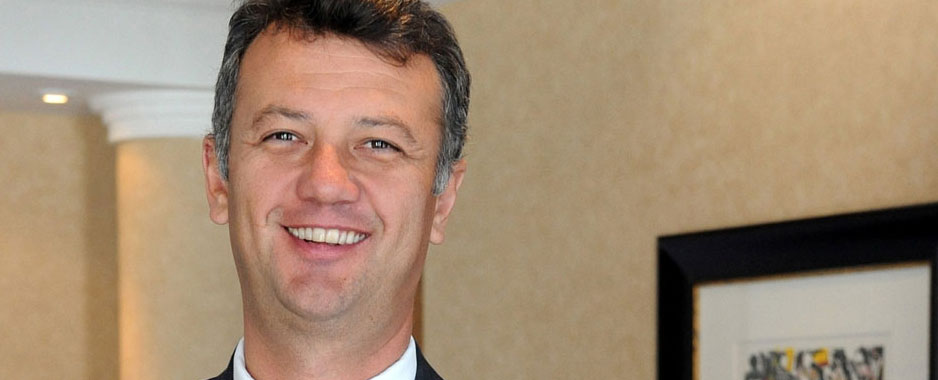
SA entrepreneurs have unrealistic expectations and a romanticised idea of what angel investment or venture capitalism means. They often blame circumstances beyond their control for their inability to secure funding, rather than focusing on their idea and ensuring it’s sufficiently strong to attract the backing they desire.
These are the views of Wesley Lynch, CEO of Cape Town-based Internet and software company Realm Digital and serial entrepreneur and angel investor. “The entrepreneur to angel [investor] ratio in SA is not as bad as people think,” he says. “There’s no shortage of money; there’s a shortage of deals.”
Lynch says “angel interventions” — where an investor takes to a pitch on first hearing it and signs on immediately — do happen in SA, but that the scene is small, “so you hear one story, not 10 like you might do in the US”.
Lynch says SA has a far smaller market than most developed economies, which means fewer entrepreneurs. He says SA is also a very different market in terms of demographics, education and access to resources, meaning it’s not possible to compare metrics.
Start-ups often claim SA investors are far more risk averse than their international counterparts. According to Lynch, it’s not that SA venture capitalists are necessarily more cautious, but rather that they want to invest in deals that look the best because that’s the business they’re in.
“The funding structure is a market force in and of itself,” he says. “Funders will choose the best product. It’s a very Darwinian view, but the ‘fittest’ deals get funded. Everyone wants to blame ‘the industry’ and ‘the market’, but if those were the problems people wouldn’t be getting funding at all, and some of them are.”
He says it’s important to avoid getting too wrapped up in terms like “VC” and “angel investment”. “It’s quite simple: people have ideas, and they need money to make them happen. Who cares where it comes from?”
People need to think about funding in a broader sense.
“If you want to start a business, and it’s a good idea, there are people who will give you money. If you’re not getting money, either it’s a bad idea or just not as good as others that are getting funded.”
There are numerous examples of SA success stories, says Lynch, including the recent acquisition of Fundamo by global payments giant Visa for US$110m. “That’s a big deal by world standards, not just SA standards.”
Lynch is part of an investor group called AngelHub, which he says receives about 10 proposals a day from entrepreneurs seeking funding.

“We want low capital-intensive, high-growth businesses,” he says. “High growth really means access to potentially a large market. That could be the African market or just the SA market. It doesn’t have to mean international.”
He says technology companies often fit the bill because “once the tech is available, one can scale these businesses out”. But AngelHub is also open to companies looking to move a physical product, assuming it “doesn’t require intense fabrication” because of the initial costs that involves.
SA entrepreneurs have to get rid of misconceptions about funding, such as assuming it’s easier in the US to raise money, Lynch says. What SA really needs are bigger networks of angel investors.
“In New Zealand, there are more than 100, and there’s a New York angels group that AngelHub is modelled on, at least in spirit, because the legalities are quite different here.”
Since its formation last year, Lynch says AngelHub concluded as many deals in three months as each individual investor would normally do in a year. “VCs have a particular mandate to invest at a certain level and lots were brokering angel deals anyway, so some of us decided ‘let’s get together and formalise this’.”
He says even angels have a hard time in SA due to the amount of red tape involved in concluding deals and the complexity of the financial arrangements.
“We’re essentially giving financial advice so we have to deal with the accompanying legislation. There’s due diligence and governance processes around the deal structures, and we have to plan for things like liability if things go wrong. The cost of doing deals is enormous, so now we have deal structures in place from our experience as a team.”
Lynch doesn’t consider himself a venture capitalist or an angel investor, but an entrepreneur. “I’m still looking for funding myself for various ventures. There is also a new breed of entrepreneurs who are raising money from angels, and in turn passing it on.”
He says angel investors are still just businessmen and entrepreneurs needing funding should always keep this in mind.
Lynch is wary of what he calls “institutional VCs”, which sometimes give the industry a bad name. “You get shoved through a formula, or credit checks and other tests, and it’s like dealing with a bank. Angels, on the other hand, take a much larger assessment of risk; it’s more about gut feel and that’s healthy.”
Many entrepreneurs also have unreasonable expectations of investors. Lynch tells of a company that didn’t own anything or have any real intellectual property — he declines to name the firm — that wanted R250m, but only wanted to give up a 25% stake for that investment.
“That means they thought they were a R1bn company,” he says. “No one is going to fund that. They talked about ‘projections’ and downplayed the risk, but for that kind of money an investor could buy a company with actual buildings and other fixed assets. Then there was the problem of their own investment.”
Lynch says the entrepreneurs in question were driving flashy cars and owned property. “They hadn’t risked their own money for 100% ownership but wanted someone else’s money in exchange for 25%.”
Successful entrepreneurs endure difficulties and must be willing to push harder than their competitors to gain a competitive advantage. “Success stories come with dark times,” says Lynch. “That’s part of the motivation. If it were easy, everyone would do it. It’s meant to be difficult.”
He adds that many companies also have unrealistic expectations of investors that extend beyond their investment. “VCs put in money but aren’t as vested – just because someone invests in your cause that doesn’t make it a team sport.” — Craig Wilson, TechCentral
- Subscribe to our free daily newsletter
- Follow us on Twitter or on Google+ or on Facebook
- Visit our sister website, SportsCentral (still in beta)




